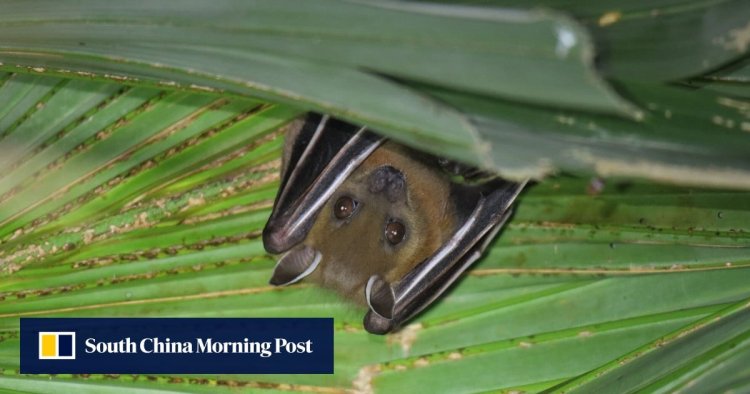Some bats make better virus hosts than others, Chinese researchers find
2023.05.11 14:30A study into what makes some bat species so friendly to viruses – like the new coronavirus that causes Covid-19 – may have important implications for the development of antiviral treatments.Researchers at Wuhan University’s College of Life Sciences in central China found complex evolutionary changes in the immune systems of different bat species that indicate wide variations across the globe.“Our findings indicate that the evolution of bat immunity genes may be even more complex and diverse than previously thought,” said Zhao Huabin, lead author of the paper published in May by the peer-reviewed journal Science Advances.“The bats studied in this research can be used to build mammalian models of viral infection and inflammatory responses, helping to analyse the molecular mechanisms of antiviral immunity,” he said.Bats are the only flying mammals, with some species living up to 30 years without becoming broadly susceptible to cancers, probably because they have evolved a


A study into what makes some bat species so friendly to viruses – like the new coronavirus that causes Covid-19 – may have important implications for the development of antiviral treatments.
Researchers at Wuhan University’s College of Life Sciences in central China found complex evolutionary changes in the immune systems of different bat species that indicate wide variations across the globe.
“Our findings indicate that the evolution of bat immunity genes may be even more complex and diverse than previously thought,” said Zhao Huabin, lead author of the paper published in May by the peer-reviewed journal Science Advances.
“The bats studied in this research can be used to build mammalian models of viral infection and inflammatory responses, helping to analyse the molecular mechanisms of antiviral immunity,” he said.
Bats are the only flying mammals, with some species living up to 30 years without becoming broadly susceptible to cancers, probably because they have evolved a distinctive immune system that can adapt to viral infections without getting sick.
This makes them natural reservoirs for viruses, including the ones that cause Ebola, Middle East respiratory syndrome (Mers), severe acute respiratory syndrome (Sars), and most recently, Covid-19.
Why culling bats won’t wipe out the deadly viruses they might carry
“Study of bats’ immune systems can provide valuable insights for understanding and controlling diseases in humans, as well as guiding antiviral treatment strategies,” Zhao said on Sunday.
The team developed a method of generating genome information at the chromosome level, surpassing current approaches in accuracy, completeness and contiguity, the paper said.
Old World fruit bats – also known as pteropodidae – have been linked to multiple spillovers of viruses into human populations. They play a crucial ecological role as pollinators and seed dispersers, but their uniquely adapted immune systems are also of interest to scientists.
“Fruit bats are also easier to breed and maintain in laboratories than insectivorous bats,” Zhao said.
The researchers started with the short-nosed fruit bat, which is widely distributed across South and Southeast Asia and is known to host several coronaviruses, including those that are closely related Mers-CoV, Sars-CoV, and Sars-CoV-2.
The acquired genome information was then put into comparative analyses of 12 bat species, including six pteropodids, with surprising results, the team said.
The study found the pteropodidae family evolves faster than other bats to form its specialised immunity.
Distinctive genetic changes are shared across pteropodids, such as the loss of inflammation genes and mutations in cell surface proteins. In addition, their immunity-related genes show higher evolutionary rates than other bat species.
“These genomic changes shaped the unique immune system of pteropodids, limiting inflammation and enabling them to coexist with a variety of viruses. That explains why pteropodids can become natural hosts of some virulent viruses,” Zhao said.
“The changes accompany species formation and subsequent evolution. In other words, [they] are specific to pteropodids, rather than being inherited from bat ancestors, and could account for pteropodids’ distinct immune adaptations.”
The academic community has long believed that all bat species possess unique immune functions, making the study’s findings appear counter-intuitive. It appears that the evolution of immunity genes in more than 1,400 bat species worldwide is likely to follow numerous entirely different patterns.
Research into bats and their relationship with viruses is intense, partly fuelled by the pandemic, with one immunologist predicting in March that important breakthroughs are on the way.
“There are going to be some huge steps forward in the next two or three years in terms of bat virology and bat immunology,” said Tony Schountz from Colorado State University, as reported by the journal Nature.
What's Your Reaction?













